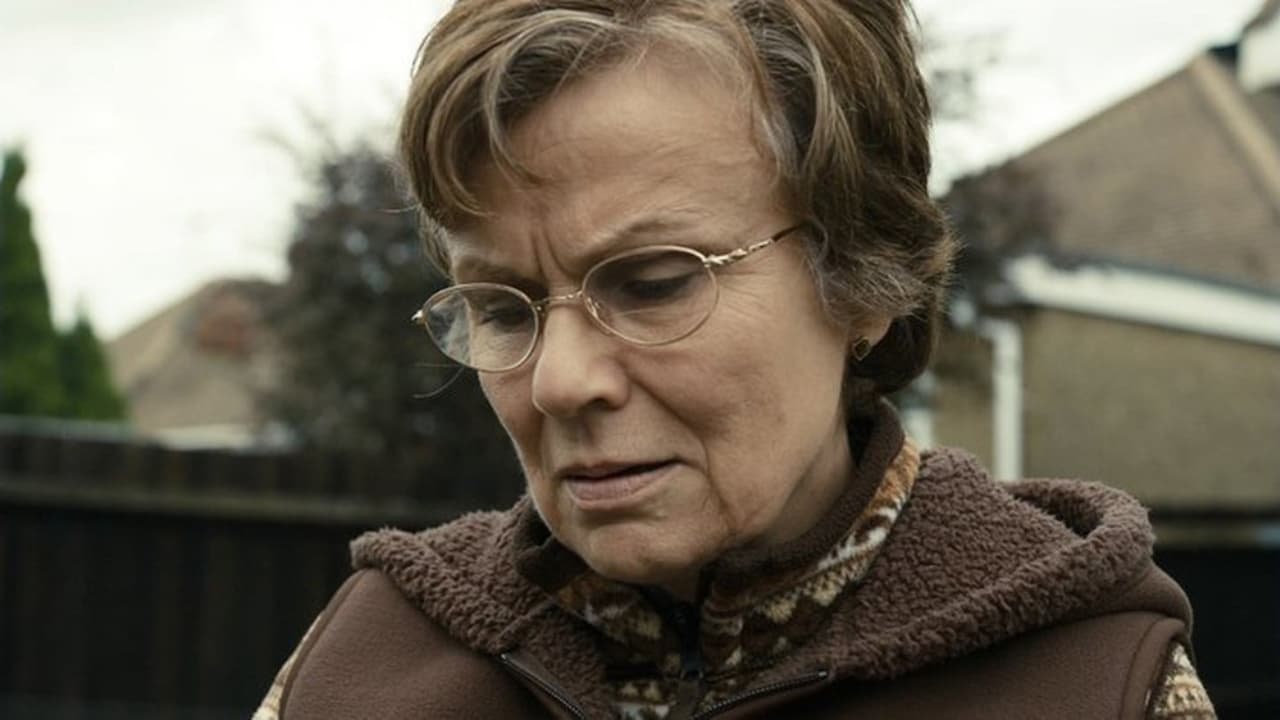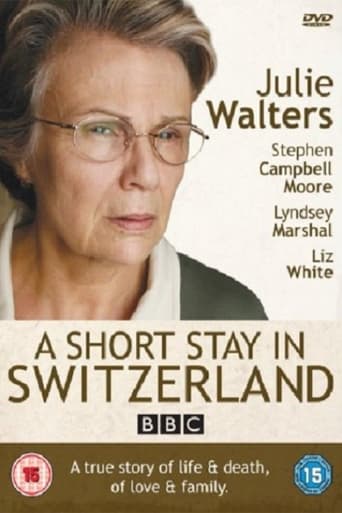grimalkin-2
After nursing her husband through the last throes of a hideous, debilitating disease, a woman doctor learns that she has a similar illness herself. She determines to die on her own terms, but first, she must convince her three grown children that the time is approaching for them to let her go. The title refers to an assisted suicide clinic in Switzerland, where she and her children must travel in secret, due to the harsh laws against such suicides of choice in the U.K. itself. As might be expected, the film has some heart-wrenching moments, sometimes small scenes where the woman bids goodbye to a beloved cat, as well as larger scenes, where her children say their final goodbyes to her. Based on the actual life and death of Dr. Anne Turner, the film features exquisite performances from Julie Waters as the mother, and Stephen Campbell Moore, Lyndsey Marshall, and Liz White as the three adult children. The movie is a plea for the legalization of assisted suicide and the right of everyone to die with dignity. It is not an easy movie to watch but is well worth the experience of having done so.
Dave Lane
A Short Stay in Switzerland... well it doesn't come in the nice-light-watching category! Quite emotional, with a gradual and inevitable build-up to a dramatic, but necessarily obvious, ending. A documentary feel, but some well-known faces, and some extremely good performances.I find it difficult to separate my feelings for euthanasia from my opinions about the film, and I'm sure my score is skewed slightly as a result. I find it incomprehensible that in a country where we have changed so many of our laws to stop Christianity affecting the lives of everyone else, and introduced laws to protect our human rights, there remains this one archaic law that defies rhyme or reason. I'm sure the problem is that no politician is brave enough to say what is necessary, but in the mean time we all risk being a victim of it. If one of the other popular religions were pro-euthanasia, it would never have survived this long. Am I being too cynical?! I hoped when this film was first aired, that it might prompt a change, or at least start some rumblings, but so far the subject has sunk back below the horizon. I just hope that I am never in the position of having to go abroad for my human rights, or grieving for a newly-lost loved one when they arrest me at the airport!Anyway, back to the film!Julie Walters plays the lead role (Dr Anne Turner) with all the quiet gravity and fabulous dignity we have come to expect. She keeps the film gritty, and improves the viewer's objectivity, by never quite allowing you to fall in love with Dr Turner. No one else could have made her character quite so three dimensional, and, as always, she steals the show.I felt the writer, Frank McGuinness, was pro-euthanasia, and like myself, finds it difficult to imagine how anyone can see it any other way. Unfortunately, he got a bit lost trying to create both a drama and a documentary. As a result, the children were less believable characters, and came off a bit like plot props. Although the (grown) children come round in the end, they spend the first 3/4 of the film being short-sighted and selfish, whilst hypocritically and unjustly accusing their Mother of the same.The only other promise of an alternative view-point comes in the form of Jessica, a family friend and chess opponent to Dr Turner, played by Lyndsey Marshal, but this too falls foul of the drama-documentary duality. There is a good scene, set around a game of chess, which starts out as a debate, but alas it all too quickly deteriorates into an argument of high emotions and shouting, which leaves the viewer with a feeling of good drama, and great acting, but still no wiser about the alternative view-point.I'm sure, if you are anti-euthanasia, your opinion of the film will differ from mine. Unfortunately, I didn't learn anything, but I hope you will. I was really looking forward to watching this, and from that point of view, it didn't disappoint. My Nana and Grandpa really want to see it too. They are almost 90, have just had their 60th wedding anniversary, and are thankfully both still very fit and active.
sailorpetey
Julie Walters really captures the essence of a woman who will not become the victim of a terrible disease and shows how to pull at the heart strings with some fine acting that goes beyond the script.This movie really brings the issue of euthanasia into the home and into the thoughts of all of us. What is really right when it comes to euthanasia, after all, Jesus helped to relieve the pain and suffering of many, but religion is not the debate here, the real story is Doctor Anne Turner and her family supporting each other through their time of need. The film, although sad, is uplifting and brave. The issues brought to light within the film help to show us how dignity is lost and pain, and suffering commences when there is no option for assisted suicide in the terminally ill.

